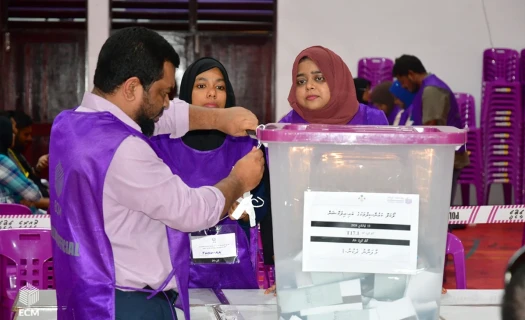Sat, 28 Feb 2026
|DHIVEHI
Foreign Currency Bill introduced to Parliament
09 Dec 2024
|

Photo: People's Majlis
The Maldivian Government has introduced the Foreign Currency Bill to Parliament, aiming to establish a comprehensive legal framework for managing foreign exchange transactions in the country.
The bill, presented by Ibrahim Falah, Member of Parliament for Inguraidhoo, was read for the first time in Parliament on Monday.
The proposed legislation seeks to regulate various aspects of foreign currency transactions, including the import, export, possession, deposit, and exchange of foreign currency within the Maldives. With a particular focus on businesses in the tourism sector, the bill also includes strict penalties for violations and aims to promote economic stability through increased accountability.
Key Aspects of the Foreign Currency Bill include:
Tourism Sector Regulations
The bill introduces a categorisation system for tourism businesses registered with the Maldives Inland Revenue Authority (MIRA), assigning two groups:
- Category A: Resorts, integrated tourist resorts, private islands, and resort hotels, which must deposit USD 500 per tourist at local banks.
- Category B: Guesthouses and tourist vehicles, which must deposit USD 25 per tourist each month.
There are exemptions for tourists who stay for less than 24 hours, children under two, and complimentary stays. Tourist vehicles registered and operated abroad are also exempt from these requirements.
Foreign Exchange Deposit Rules
Businesses with an annual income of up to USD 15 million must deposit at least 25 per cent of their foreign exchange earnings into local banks each month. This requirement is designed to enhance financial transparency and ensure compliance with the new regulatory framework.
Penalties for Non-Compliance
The bill includes severe penalties for those who fail to comply with the regulations:
- Fines ranging from MVR 10,000 to MVR 1 million, depending on the severity of the violation.
- Daily fines of up to 25 per cent of undeclared foreign currency until compliance is achieved.
- Suspension of business permits for those who do not pay fines within 90 days.
- Banks failing to deposit the required amounts will face fines of up to 5 per cent of the undeclared foreign currency.
The Maldives Inland Revenue Authority (MIRA) will be responsible for investigating violations, reviewing accounts, and imposing fines. The authority can also take legal action to recover unpaid fines through the courts.
This bill is a key step in regulating foreign currency transactions and ensuring that the Maldives maintains economic stability and transparency.








